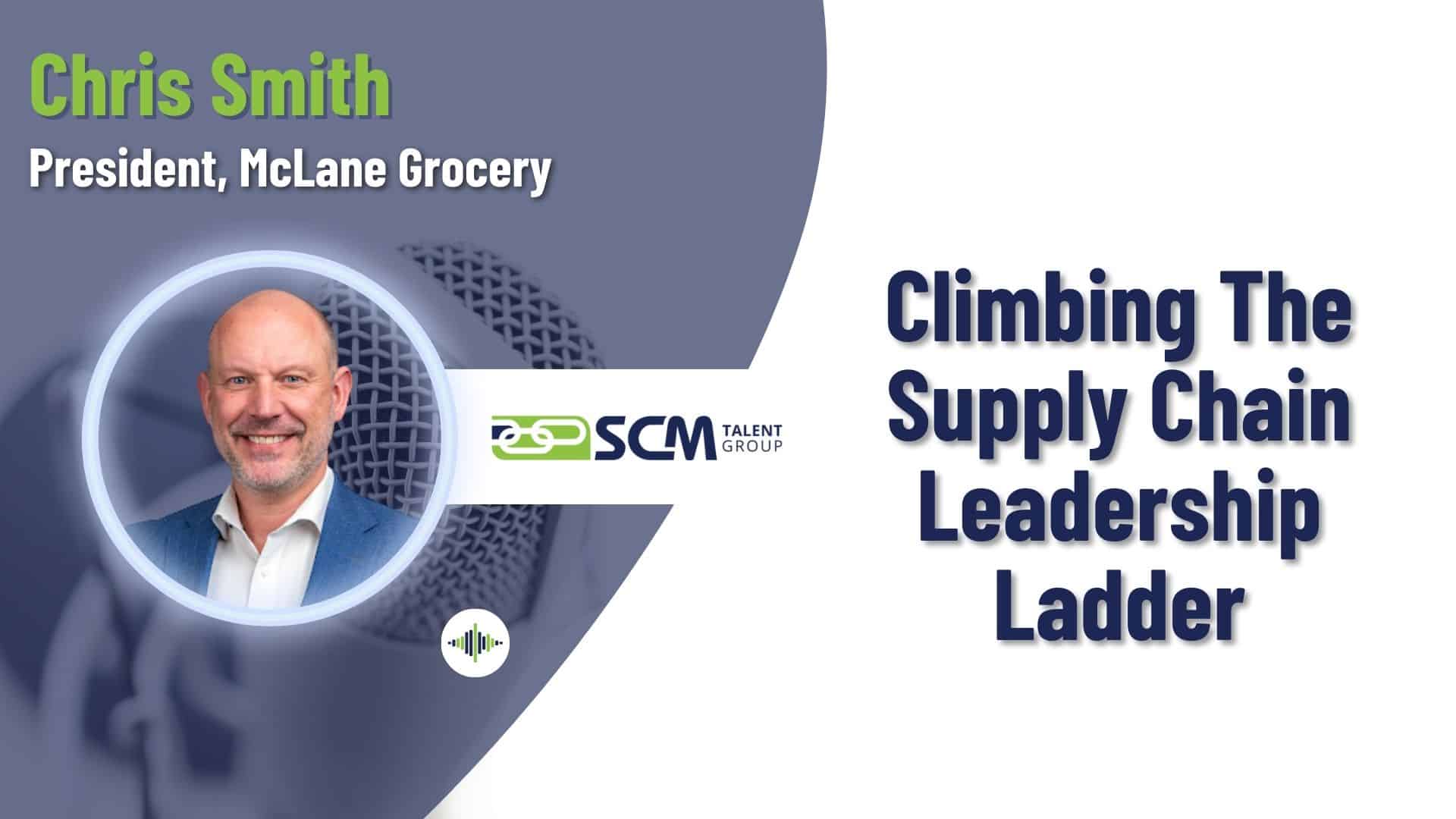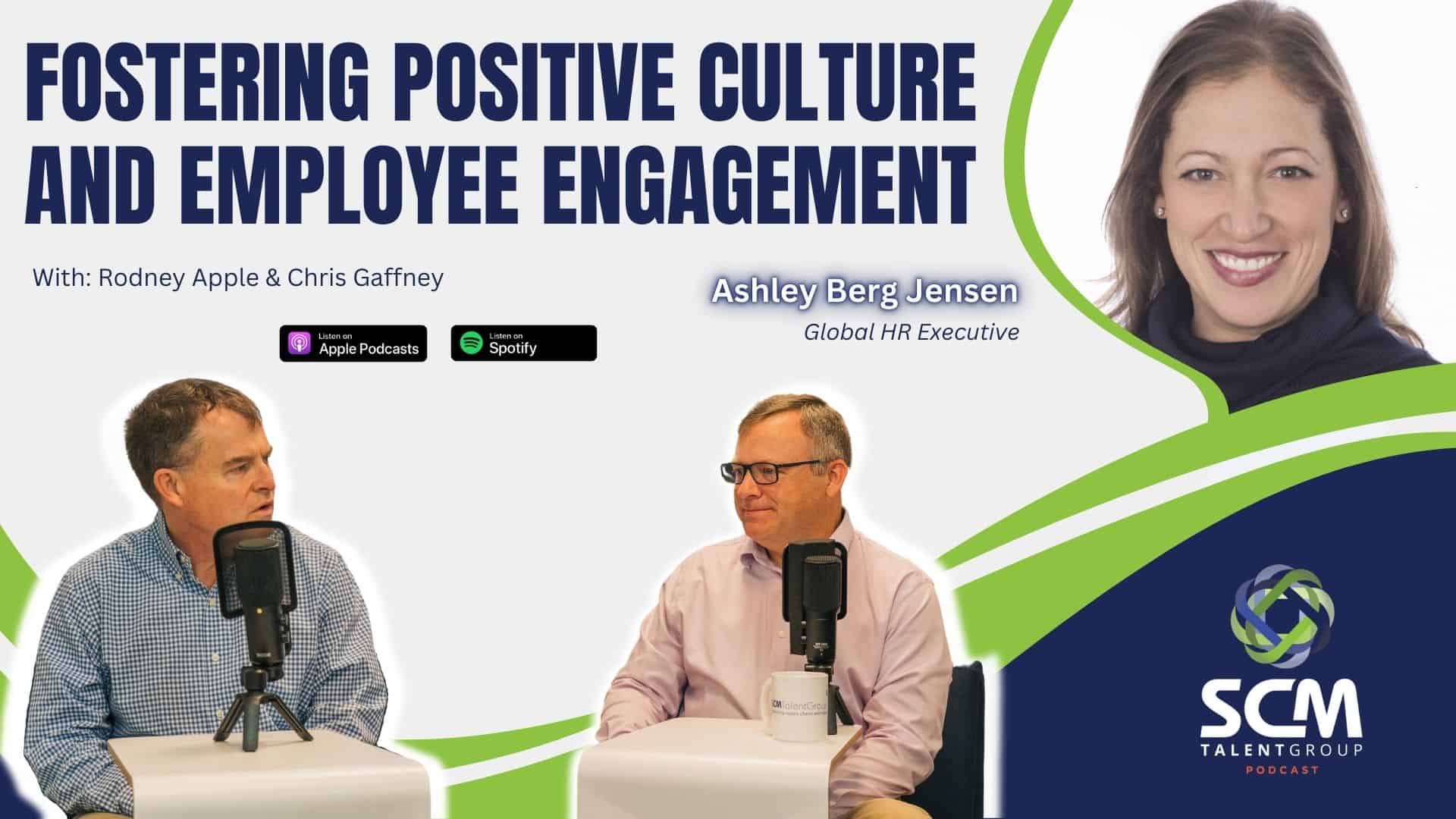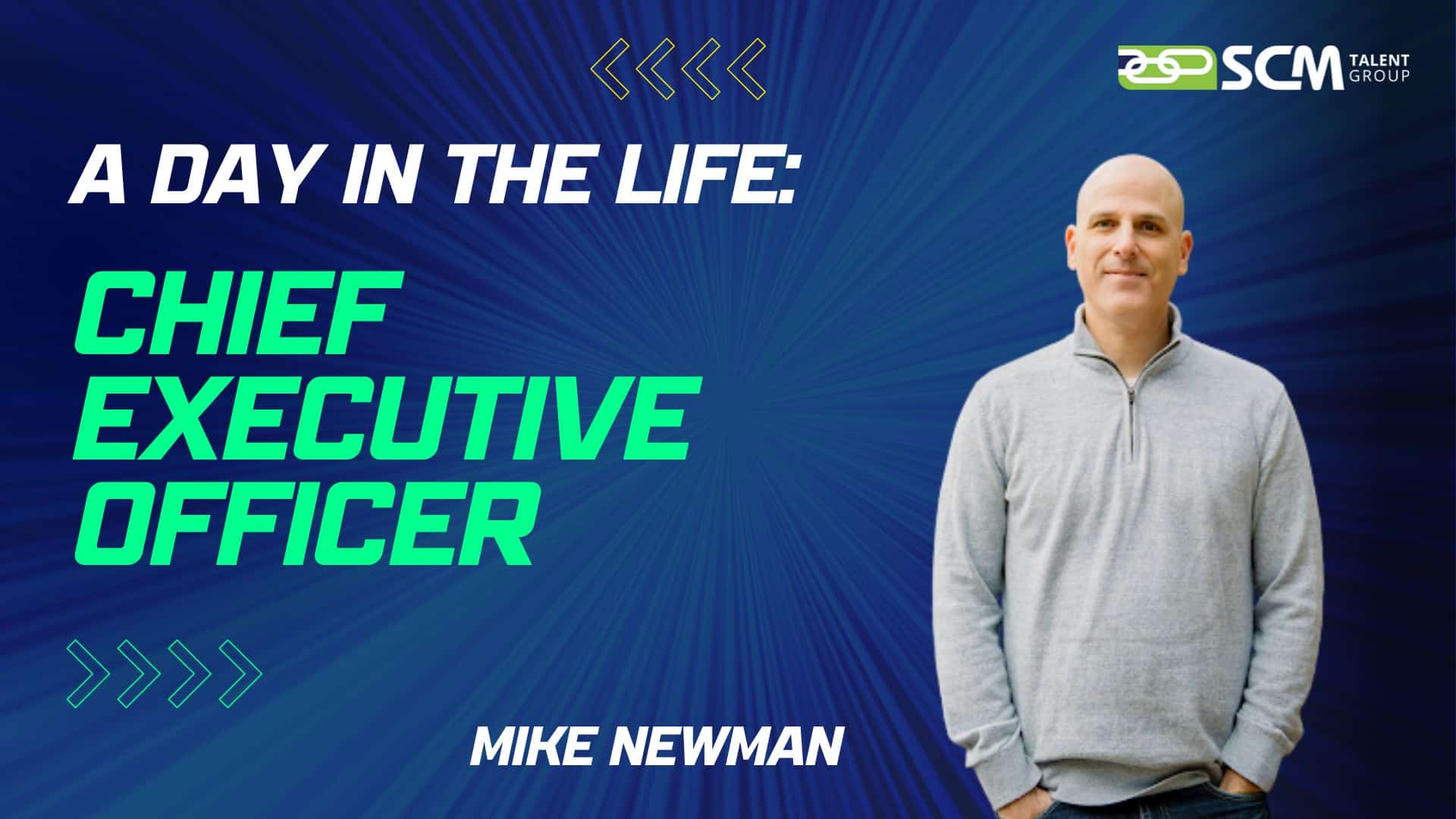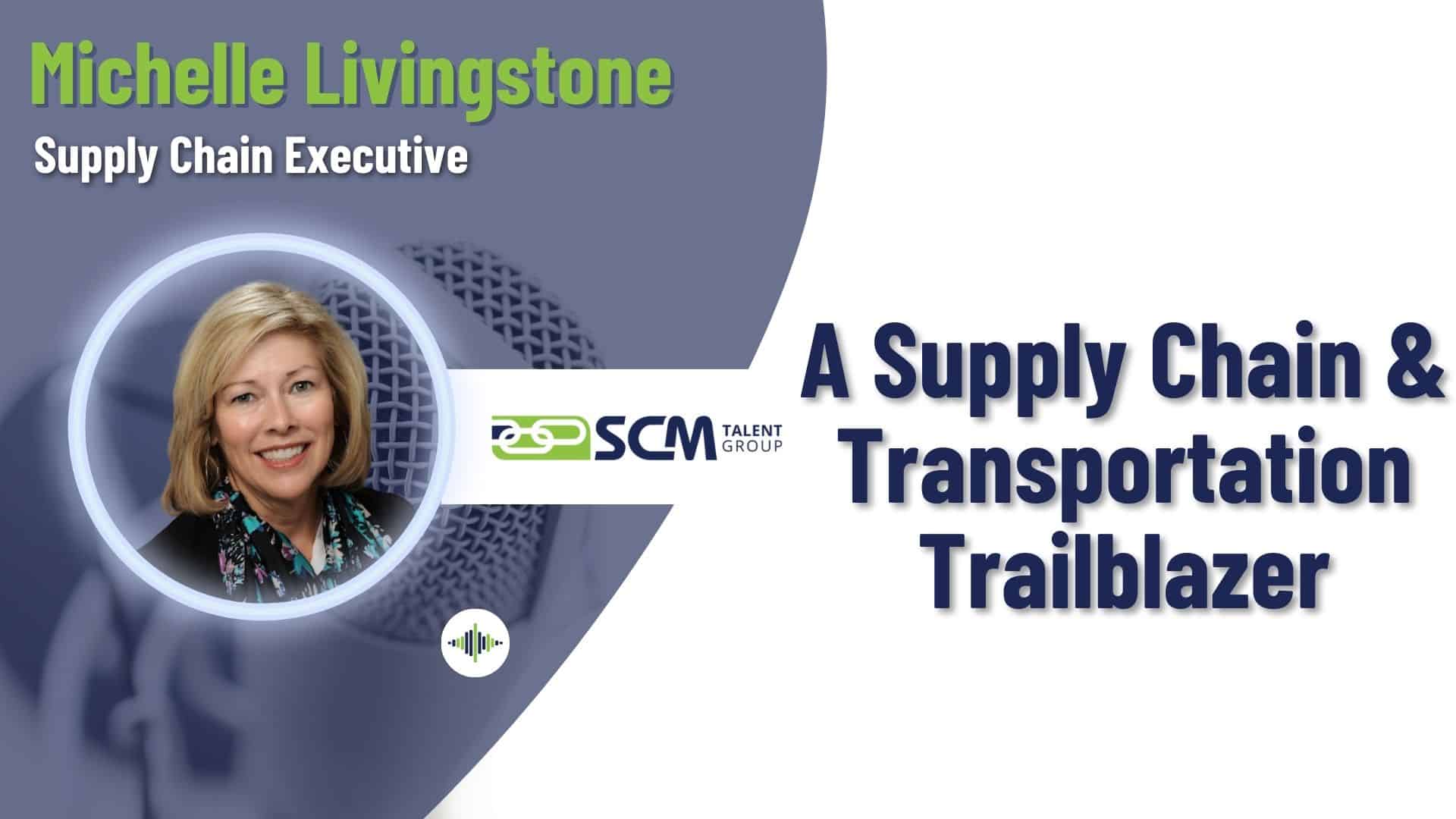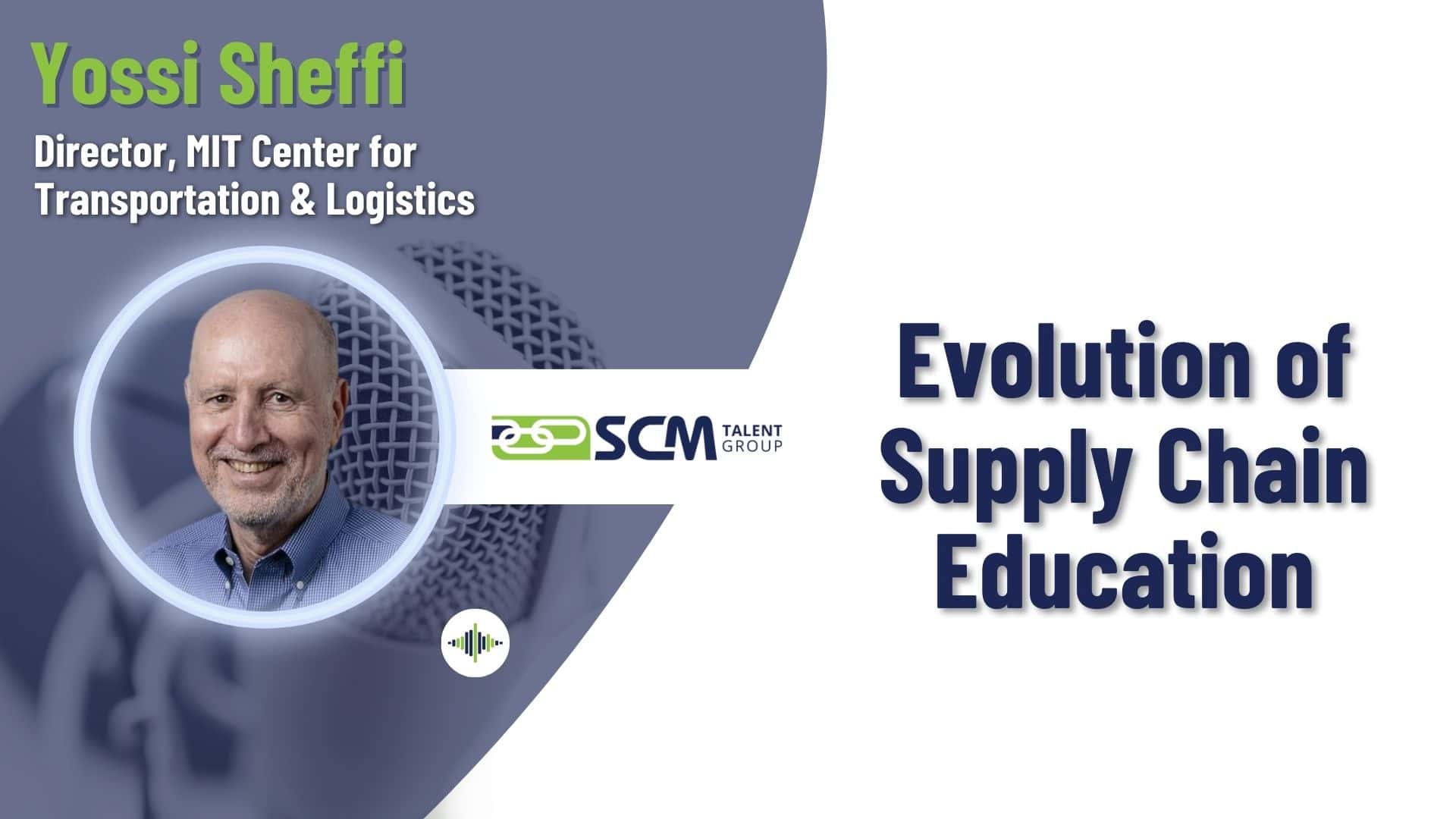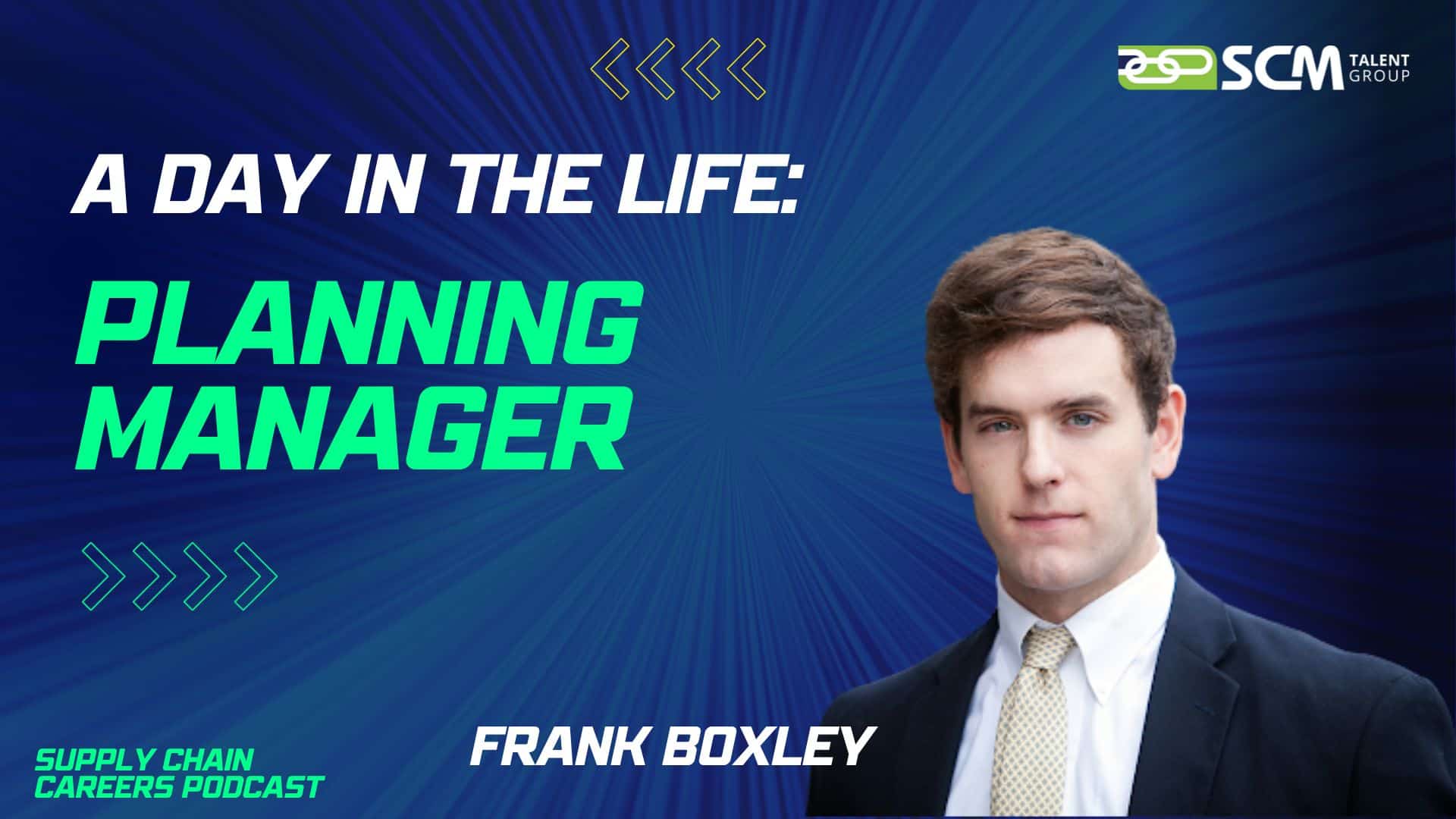
Podcast: A Day in the Life of a Planning Manager – with Frank Boxley
Hosts: Rodney Apple and Mike Ogle
In This Episode:
In our latest episode, we sit down with the astute Frank Boxley, Planning Manager at Mersen, and delve into the intricate world of manufacturing planning.
With 4.5 years of experience backed by a background in accounting, sales, and data analysis, Frank’s journey into planning was a natural progression. He’s a maestro at data analysis, opportunity cost modeling, and understanding market implications, all aimed at steering manufacturing plans toward financial success.
Join us as Frank unpacks his daily routine, from navigating key variables to orchestrating a symphony of collaboration across finance, sales, purchasing, and beyond. His strategic use of data has transformed decision-making, overcoming challenges of skepticism and bridging gaps in understanding.
Tune in to discover how Frank’s passion and expertise are crafting a blueprint for financial performance in the manufacturing realm.
Who is Frank Boxley?
Frank Boxley is a seasoned Planning and Sales professional with over 5 years of experience in Fortune 300 and international materials manufacturing companies. He is proficient in leveraging data to offer strategic insights, analyze and interpret results, and produce comprehensive reports. Frank has a strong understanding of financial statements, operations, and supply chain management.
His career began in the Sales Department at Steel Dynamics, one of the largest domestic steel producers and metal recyclers in the United States. Recognized for his ability to leverage data sources to provide valuable insights into sales operations, thereby increasing service and operational efficiencies, Frank was promoted to a Production Planner role. In this position, he skillfully utilized market and manufacturing data to optimize product mix and production schedules, significantly enhancing profitability.
In 2021, Frank joined Mersen, a vertically integrated graphite manufacturer headquartered in Paris, France, as a Production Planner. His exceptional performance led to a promotion to Planning Manager, where he was responsible for directing the activities of Inventory, Logistics, and Planning. Frank is currently pursuing his MBA at UNC’s Kenan-Flagler School of Business while working full-time for Mersen.
[00:00:55] Chris Gaffney: I am Chris Gaffney, and I would like to welcome you to another episode of our day in the life series. And today. We are joined by Frank Boxley. And Frank, I’m excited for you to join us and share what you’re doing in your current role. And in particular, unique situation juggling work and grad school at the same time. Frank, welcome.
[00:01:23] Frank Boxley: Thank you so much for having me, Chris.
[00:01:26] Chris Gaffney: Frank, to tee us up, I would love for you to just talk headline about, your current role, and at the same time, if you’ll just let people know what you’re doing in grad school, because again, this is a hot topic for lots of our professional audience.
[00:01:41] Frank Boxley: Yeah, absolutely. As you mentioned, my name is Frank Boxley. I’m a planning manager for a company called Mersen. We’re a global vertically integrated graphite manufacturer based out of Paris, France. I work for 1 of the downstream fabrication companies that make heat exchangers for the chemical and pharmaceutical industries.
[00:02:02] Chris Gaffney: That’s a mouthful Frank. But the whole purpose of this series is to help people who either are in or are aspiring to a particular role and a planning manager is definitely a very common role across many verticals and many supply chain. So, it’s a role that many people will hope to see themselves in at 1 point or another.
So, I would like you to talk a little bit about how long you’ve been in this planning space. And then what motivated you? How did you get to where you are today?
[00:02:40] Frank Boxley: Absolutely. So, I’ve been working in planning for the past four and a half years, I was urged into planning by a previous mentor manager that felt my accounting backgrounds my experience in sales and my data analysis skills could be utilized in increasing financial performance of the company.
At that time, I was working for a company, steel dynamics, in the electric arc furnace steel manufacturing business. So, we were making long products for the steel industry. And every position I’ve held, I’ve utilized spreadsheets and my technical skill set. To create efficiencies for myself and the company, and I’ve always believed the best way to advance in one’s career is to have the opportunity to leverage the largest proportion of the tools in one’s toolbox.
And at the time planning offered that opportunity.
[00:03:33] Chris Gaffney: So, I think it’s great that you have prior experience in sales and accounting. A lot of our folks might have started, solely in a supply chain curriculum. I’m curious. As you moved in this direction what people told you about what experiences and hard and soft skills and qualifications would be needed versus what you found, were you pleasantly surprised?
Did you had to have to fill gaps, getting into the role? So, give me some perspective on that.
[00:04:04] Frank Boxley: Absolutely. I really wasn’t given a lot of foresight into a lot of the skills that were necessary really at steel dynamics. They created the position for my skill set. I was within the sales department, I was supporting kind of the sales ops, kind of role. I was the administrator of our B. I tool within the sales department, and I was also the administrator of our Salesforce C. R. M. Program within the sales department along with my normal role within the sales department. So, a lot of what they set me up for was the data analysis part of the skills that I was bringing to the table within data analysis.
Would then help me in this role for production planning, which was the role at the time. But I believe the hard skills that have contributed to my success in planning have been the ability again to analyze large data sets. The ability to model opportunity cost and the ability to understand market implications.
To put that a little bit more simply, I think the ability to zoom in and then zoom out and to understand the data and the impact in isolation, and then to be able to understand implications in context of the entire operation. And planning is really the junction of several stakeholders. The decisions made by planning have implication for a wide variety of functions.
And I think that the soft skills in a planning position are incredibly important including the ability to listen, distill the most important information, and make decisions that align to the greatest outcome for the company’s financial objectives.
[00:05:45] Chris Gaffney: So, what you didn’t say, Frank, was that you had to have intimate knowledge about how this supply chain works and that type of thing.
So, I would like you to comment on your perspective on the kind of things that you were able to and you would suggest that folks can learn within the job if they bring these other type of skills to the table.
[00:06:06] Frank Boxley: Yeah, absolutely. I think I think, Thank you. Some of the knowledge of the supply chain that I got on the job was really the interconnectivity of the supply chain with other functions between sales selling a product and then being able to put that product out to the customer in a time that they’ve promised or the time that the customer expects and understanding the relationship between the customer’s expectations and the company’s financial goals was really a strong piece of knowledge to gain from being both in the sales department and having that experience obviously having the background of accounting experience and then to put those two pieces together within a supply chain function.
Within a planning function that was extremely meaningful to my success thus far within planning.
[00:07:00] Chris Gaffney: Okay. Last question on, what it takes to be ready for a role like this. If you look backwards and forwards, right? Either experiences you wish you had that might have helped you or when someone succeeds you something else, you would say, ideally, it would be good.
If you’d had some exposure to this. Is there any 1 or 2 things that pop into your head on that?
[00:07:25] Frank Boxley: It’s a great question. I think if I had to look backwards. And really give someone a piece of advice on maybe some experience that would be helpful is really understanding more of the market implications on some of those decisions, because as a planning manager, and it depends what context you are planning in. There’s the context of being a planning manager where you’re creating stock for stock buying for customers and creating that threshold of how much stock are you going to put on the floor for people to order from? And then there’s more made to order planning role.
And I think understanding really the context of the market more intimately, having that sales experience, understanding what really is a pain point for the customers. I think that really is an important piece that without you just can’t be as successful in a planning role.
[00:08:22] Chris Gaffney: Fantastic. Okay. So now I want to shift into kind of the true day in the life kind of elements.
What I’d like you to start with is what are you focused on? What do you spend your time on in terms of what have your objectives? Metrics of success? What your boss expects of you across functional folks expect of you? And literally, if you think about where you’re spending your time in a given day and across a week, what does that look like from a high level?
[00:08:51] Frank Boxley: The objective of my role is to facilitate financial goals of the company through a comprehensive manufacturing plan. I think of my role in terms of a Mike Tyson quote, everyone has a plan until they get punched in the mouth. My job is to make a resilient plan, understanding that I will figuratively get punched in the mouth again and again, while mitigating any adverse effects to the financial result as much as possible.
And I think, speaking to the day-to-day tasks. They’re really to understand the key variables in the manufacturing plan to monitor those variables and to adjust the manufacturing plan to ensure delivery of monthly and yearly top line performance while optimizing bottom line results.
[00:09:34] Chris Gaffney: You said it there, but if you think about the time horizons that you spend your time focused on, can you comment between the shortest time horizon and the longer time horizon where you spend time and, how you’re having to do different things to address those questions?
[00:09:51] Frank Boxley: Yeah, absolutely. And in different roles and in different companies that has taken a different shape, but I think ultimately as a planning manager you really to be focused on several different intervals of time, shortest is definitely to the day. There’s a fixed fence in which you’re not really altering that manufacturing plan, but at the same time, things go wrong even within a day of, when something’s supposed to ship and especially when you’re integrated within shipping and inventory and the planning process. You’re always homing in on that smaller set of time at different points in time. But, my kind of regular intervals are one day, two weeks which is within that kind of fixed fence timeframe.
And then go out to a month to understand, really our financial goals are on a monthly basis. So, delivering that top line performance on a monthly basis. And then we have a three-month rolling forecast that we’re very focused on. It’s what we need to be within a certain degree of accuracy on and are held to a certain standard on those three months and then all the way out to 12 months.
It’s really the 1 day, 2 weeks, 1 month, 3 months, and then again 12 months.
[00:11:09] Chris Gaffney: So, I know we say day in the life, but with the planning manager, sometimes there’s a cycle across the month. And does your focus change week 1 versus week 4 of a month and talk to us a little bit about what that looks like?
[00:11:22] Frank Boxley: Yeah, absolutely. I try to keep myself organized by having a rhythm to the month and kind of week 1 is really making sure that monthly plan that I’ve set out, I understand what the key risks are within that month and understanding, trying to see around the corner a little bit.
What do I need to watch out for? And what do I need to make sure goes our way? Falls our way in order to really accomplish the plan for the month. Then by week 2, I’m really at this point, setting my gaze a little bit further and trying to make sure that, some of the things that are more in the distance, the 3-month items are falling in line that I’m working ahead, understanding what I need to get done and what timeline to meet those objectives for the 3 month plan.
And then by week 3 I’m really more focused on the day-to-day operation again, trying to understand, are we hitting our objectives on a daily basis in order to get the product through the plant in the time we need for the customers? And then week four, it’s really about where those numbers are going to fall for the month.
And bringing it back to that monthly view and saying, okay, we’ve gotten X way through our plan. We have these jobs left to go, where are they in status? And are we going to achieve them? If not, there’s a little bit of that. This kind of bridges the gap between week 3 and week 4 is there anything that we need to do to accommodate that plan to make sure we hit that top line result for the month?
And then by the time you’re in that back half of week 4, you’re already looking on to the next month and you’re rolling into that week 1 again. So it’s the week 3 kind of rolls into week 4 kind of rolls into week 1 and then you’re back again.
[00:13:11] Chris Gaffney: Very helpful.
And obviously, in this role, you’re a bit of a traffic cop, a bit of a coordinator, a bit of a collaborator, because you’re trying to bring together. A lot of different views and obviously demand versus supply. So talk to me about the key stakeholders, different functions you work with internally, and if you work with any external players in terms of how you’re trying to build this plan and then manage execution of it.
[00:13:40] Frank Boxley: Sure, absolutely as I mentioned previously, playing is really the intersection of so many different stakeholders. Key stakeholders. Although I’m sure I’ll leave some out our, finance, general management sales, purchasing quality as well, the customers. So, while I’m not having too much direct contact with outside customers.
Ultimately, my answer is what’s getting back to them. So, I do think of them as a stakeholder. They care very much at how I execute on my job. The customers are really 1 of those primary stakeholders that I’m trying to make sure that we’re doing everything within our power to achieve what we’ve told the customer what we’ve promised the customer.
While keeping in the bigger picture, what is going to get us to our financial objectives? And that’s where finance general management is being that key stakeholder sales. Obviously, is across those 2 parties. So, they are advocating on behalf of the customer and making sure that we’re hitting the timelines and deliverables that we’ve promised the customer.
While also trying to meet the goals of the company in general. So, it’s a delicate ballet between those 2 pieces. And then obviously for the company that I work for now, I’m really entangled with quality, trying to make sure that we have inspectors on site hitting the timelines for those inspectors.
And really coordinating that schedule and then obviously purchasing. Purchasing and planning work intimately hand in hand, trying to make sure that all the supplier, all the supplies that we need to start a project are getting in on time and in a manner in which we can use.
[00:15:25] Chris Gaffney: I can tell in your voice that you’re fired up and motivated about it. So I’d like you to as you think about someone else looking at this job what do you find most enjoyable about the role as you’ve been in it for a period of time?
[00:15:38] Frank Boxley: I think you hit it right on the head.
It’s something that I’m very passionate about. It’s hard not to be passionate about it. I enjoy the ability to use the breadth of my skill set to strategically improve the financial performance of the company. I have especially taken pride in increasing the role and breadth of data considered in daily decision-making processes.
As a planning manager, I utilize data every day. I leverage data sets that other functions maybe don’t look to quite as much. And so to be the role that brings that to the table and shows the value of certain data to make different decisions, that’s something that I have a lot of passion for.
[00:16:49] Chris Gaffney: Oh, that’s great.
Now, I think the flip side is obviously, when people are thinking about a role for the future, we want to give them some kind of caution tape as well. What do you think are the typical challenges that you face on an ongoing basis or a reasonably frequent basis that someone thinking about a role that just needs to be aware of?
[00:17:07] Frank Boxley: Absolutely I’m constantly reminded that on the timeline of the usage of large data and machine learning and manufacturing, we’re really still writing the beginning chapters. And to that point, in most of the companies I’ve worked for, there’s an element of continuous improvement around data integrity.
And an obstacle that I’ve frequently run into in my career in manufacturing has been the distrust or misunderstanding of the data being generated in the manufacturing process and the sentiment that the data has to be perfect before it’s utilized in any capacity. And I find myself often having to reason with management teams.
Not to throw the baby out with the bathwater and I think the adage about data garbage in garbage out is accurate when viewed through the lens of a model or software. However, I’m reminded of another adage 1 man’s trash is another man’s treasure. I found some of the most insightful discoveries in the planning process have come from sorting through the garbage.
And much of my role is to analyze these under leveraged sets of data to understand what is going on in the manufacturing process. And I’ve found it’s paramount to supplement those findings with interviews of stakeholders, managers and operators. And the ability to integrate these perspectives together into a cogent story is where the foundation for improvement lies.
[00:18:35] Chris Gaffney: Yeah, I think it’s a real common challenge in many cases. You’re trying to be bring more discipline and rigor and try to bring more data driven decision making. And a lot of the people involved is to change management issue. They historically have been able to run their own play and whatever. So, you’re trying to bring a different level of maturity.
So as soon as they hear a question about that data integrity or that type of thing, they could say, ah, we can throw all these recommendations out because I can call into question with 1 percent possibility that this is not right. I think that’s important. How do you address those challenges?
How do you get support to continue to make progress with a common challenge like that?
[00:19:19] Frank Boxley: Yeah, absolutely. That that is. A question that I’ve spent my career trying to answer. In my last answer, it’s really about being able to go and interview and really speak with the people that are the operators, the managers these different stakeholders in the output of that data and understand how can we contextualize this data so that it resonates with the people that you’re speaking with. And I think the context that you can add to that data really will tell that other side of the story.
If you can find something that is. Maybe being questioned, but then you can put context to why it is the way it is, then you can then either improve the process. Or you can utilize that information to contextualize the information and use it in the way that it can be used.
I think that data tells a story and what people frequently do is try to tell a story and back it up with data instead of letting the data tell the story it’s telling. If that makes any sense.
[00:20:32] Chris Gaffney: No, I think it’s a great point. And, I know many people who came. Into, supply chain management with that strong analytical horsepower and you have you have the ability to gain insight from large volumes of data, but the point that you made of the contextualizing is important. And so I always say for folks who were, I call more digital natives, right? They got to come closer to the physical elements and ideally the people who are physical natives, they started on the plant floor.
We want to bring them towards the digital side. But the reality is in this planning role, you’ve got to be a bit of that person enabling people to bridge that gap in a way that they can gain confidence with over time.
[00:21:18] Frank Boxley: That’s well articulated. The planning function is being able to bridge that gap.
[00:21:22] Chris Gaffney: Awesome. At the beginning we talked about another challenge that you have, and that the fact is that you’re juggling work and grad school. So, I’d like you to comment. This is something a lot of people contemplate, right? So, I’m going to ask you a couple questions in this space. But the 1st 1 is what was your motivation and hope to say I’m going to, I think is important for me to go to grad school. It’s going to enable me to do x.
[00:21:48] Frank Boxley: Absolutely. I think. With grad school, I had a lot of intuitions and I had a lot of formal education from undergraduate that allowed me to make some assertions that allowed me to piece some things together. And what I really wanted to do was to substantiate some of those intuitions that weren’t touched on quite as heavily in undergraduate.
If that makes sense to you. And really being able to back up some of those intuitions, some of those experiences gained on the job with some modern theory and some modern practices that are taught at some of the great business schools out there, like Keenan Flagler. I felt that would really bring some substantiative backing to those intuitions and allow me to utilize that gain knowledge to make even bigger improvements to really push my career to the next level in whatever the next step is.
[00:22:49] Chris Gaffney: That’s great. Now, this is a tough, practical challenge to juggle these things. It’s a time challenge, making and keeping commitments both at work and at home.
How did you try to set yourself up where this could be successful? And I know you’re in the middle of the movie, but what are you, what are your learnings there in terms of maybe a perspective that be helpful for others who are thinking about it or navigating it in parallel with you?
[00:23:15] Frank Boxley: Yeah, absolutely.
I think one of the biggest benefits to me of going back to school while working was the ability to implement what I’ve learned the night before the next day at work. And I think that has served as a motivation for me and a kind of North star during this whole process on the reason why I’ve entangled these things is for the ability to be more effective at work, but also for that knowledge to be sunk in deeper to really be cemented in my base of knowledge. And I think that maybe comes from being an athlete a little bit. I went through undergrad obviously was not working, but I was doing college sports. And recognize that I, in sports, it’s so much easier to learn things into because you’re doing them right away and they just stick with you that much more, then having an undergrad program and then coming out and going into the workforce. I found myself, going back and referencing textbooks and things like that. Whereas sports, I didn’t have a textbook. I never had to go back and reference and I think, and I at least reasoned with myself that was partly because I was implementing it right away and I think that was something that resonated with me and made sense when I chose to go the full time work while getting my masters.
[00:24:43] Chris Gaffney: I think that’s fantastic. Now, in this role, you’re learning as you go, you’re building experience. Whether it’s your company or your perspective, what do you think success in this role allows someone to contemplate doing next? A couple different avenues where someone might say, once you’ve been a planning manager, learn that been successful.
Here are some things that you likely could aspire to beyond that.
[00:25:10] Frank Boxley: Chris, I’m definitely biased, but I firmly believe that it takes a special skill set to be a planning professional. As I spoke to earlier, 1 must be able to quickly assess the opportunity costs of decisions, home in on the ones that net the largest return.
And for that reason, I think that planning professionals have many avenues available to them for advancement, finance operations, supply chain leadership being among them, and I’ll take the opportunity to advocate that I think planning professionals make for great leaders and companies at every level from VP to director all the way to the C suite.
I think there’s an abundance of opportunities available to planning professionals specifically,
[00:25:50] Chris Gaffney: I think your take is right, we did a podcast last week with a CEO who was a supply chain professional. So, the 1st things 1st, as we say, there’s evidence that supply chain people can get up into that C suite.
But I also know a number of other peers of mine who were deep in the planning world, and that enabled them to go into more senior roles, be it in the supply chain, be it in general management. And so I think it’s a legitimate aspiration. It is a linchpin role and a right of passage for a lot of supply chain professionals.
I think my last kind of specific question for you is, if you have to advise people who are looking to get into this role, what are the things that you would say. Do these things and you will have a higher probability of both being selected for a role like this and being successful in a role like this.
[00:26:43] Frank Boxley: Yeah, I think that my advice to aspiring planning professionals is to dig your ditch as wide as you can and as deep as you can. By that, be a generalist with a specialist skill set the more you understand the perspectives of each department. Yeah. The better planning professional you will be and your ability to bring the right tradeoffs to the table or make the right decisions in a pinch will dictate your long term success.
I think staying curious, and volunteering for anything that you can get, more projects under your belt, more things you can have your fingers in. I think those are the things that will really help someone get into a role in the planning. Side of things, and I really think that, like I said, being able to zoom in and zoom out.
Those are keys to success within planning.
[00:27:32] Chris Gaffney: I think that’s a great a great set of advice for folks. Frank, as we’ve gone through this. Is there anything else that’s on the tip of your tongue and saying, you know what, there’s 1 more thing. I want to make sure people here who have tuned in to say, what is it really like to be a planning manager?
[00:27:47] Frank Boxley: Yeah, absolutely. I think. A planning manager really and again, I’m biased again, but is a cornerstone of. And there is a certain responsibility that comes with that. And I think that you have to be, you have to be able to give 110 percent every single day. There is no off day for a planning professional.
You have to come to the table every day, bringing your a game, being able to execute every single day. Because when you don’t inevitably the company will suffer for that. And I think that is a privilege, not a detriment. That is a privilege to be able to have that kind of impact and especially to have the role where you can really affect change in your company where you can really affect the financial performance of your company.
[00:28:44] Chris Gaffney: Yeah, I think it’s a great point and I, if I want to add a few fine points. I think if you really like the heat of the battle, if you want to run to the fire and be in the middle of things, this is the role that allows you to do that.
It’s got risks to it. It’s a high wire act, but that opportunity to have impact honestly have a lot of visibility I think is 1 of the that really attracts people who have aspiration to a role like this. I would love your comment on that.
[00:29:15] Frank Boxley: Absolutely. I think. Yeah. That was something that my mentor back when I got pushed into the planning realm of things.
I think he saw before I ever saw. I think he said that you have aspiration. This is where you want to be. And really, it’s something that I’m appreciative for every day. I think that it has challenged me to grow as a professional. It’s challenged me to again, bring my a game every single day. And I think that it’s an incredible opportunity for young professionals, even any point in their career to step into a role that has meaningful impact on the trajectory of a company.
[00:29:55] Chris Gaffney: I couldn’t say that any better, Frank, and I would like to thank you. This has been spot on. We really like to give people a peek under the tent as they’re thinking about a role.
And I think you’ve hit on a number of those things; I think you brought some unique perspective for those folks who were thinking about doing grad school during work. This has been another great episode in our day in a life series. And I really would like to say, thank you so much for taking the time to do this with us.
[00:30:22] Frank Boxley: Chris, I really appreciate it. Thank you for having me. It’s been a, it’s been an honor and I love listening to your podcasts when you guys put them out.
[00:30:30] Chris Gaffney: We’ll keep listening and we’ll say the same thing to our audience. So thanks so much. And we’ll see you.
[00:30:32] Frank Boxley: Yes, sir. Take care.
Need help hiring a Planning Manager?
Connect with the executive recruiters at SCM Talent Group today to elevate your team’s potential and secure the talent your organization needs for future success!

Check Out Other Podcast Episodes:
Podcast: A Day in the Life of a Planning Manager – with Frank Boxley
Brian Kennedy2023-11-02T20:21:23+00:00November 2, 2023|
Listen to our 9th episode of the "Day-In-The-Life of a Supply Chain Professional" podcast series! Hear the day-to-day activities of Frank Boxley, a Planning Manager at Merson!
Podcast: Climbing the Supply Chain Leadership Ladder – with President of McLane Grocery, Chris Smith
Brian Kennedy2023-10-31T18:05:57+00:00October 31, 2023|
[...]
Fostering Positive Culture and Employee Engagement – with Global HR Executive, Ashley Berg Jensen
Brian Kennedy2023-10-26T15:50:01+00:00October 26, 2023|
Tune into the 4th episode of our Supply Chain Talent Building and Engagement Podcast Series. Dive deep into fostering a positive culture and boosting employee engagement with Global HR Executive, Ashley Jensen.
Podcast: A Day in the Life of a CEO – Career Path to Chief Executive Officer
Brian Kennedy2023-10-24T16:47:17+00:00October 24, 2023|
Listen to our 6th episode of the Day-In-The-Life of a Supply Chain Professional podcast series! Hear the day-to-day activities of Sean Mitchell, VP of Customer Success at Gather AI!
Podcast: A Supply Chain & Transportation Trailblazer – with Supply Chain Executive, Michelle Livingstone
Brian Kennedy2023-10-20T14:15:47+00:00October 20, 2023|
Listen to our 61st Supply Chain Careers Series Episode featuring Supply Chain Executive, Michelle Livingstone!
Podcast: The Evolution of Supply Chain Education – with Yossi Sheffi, Director, MIT Center for Transportation & Logistics
Brian Kennedy2023-10-17T16:34:15+00:00October 17, 2023|
Listen to our 59th Supply Chain Careers Series Episode featuring Director, MIT Center for Transportation & Logistics, Yossi Sheffi!


